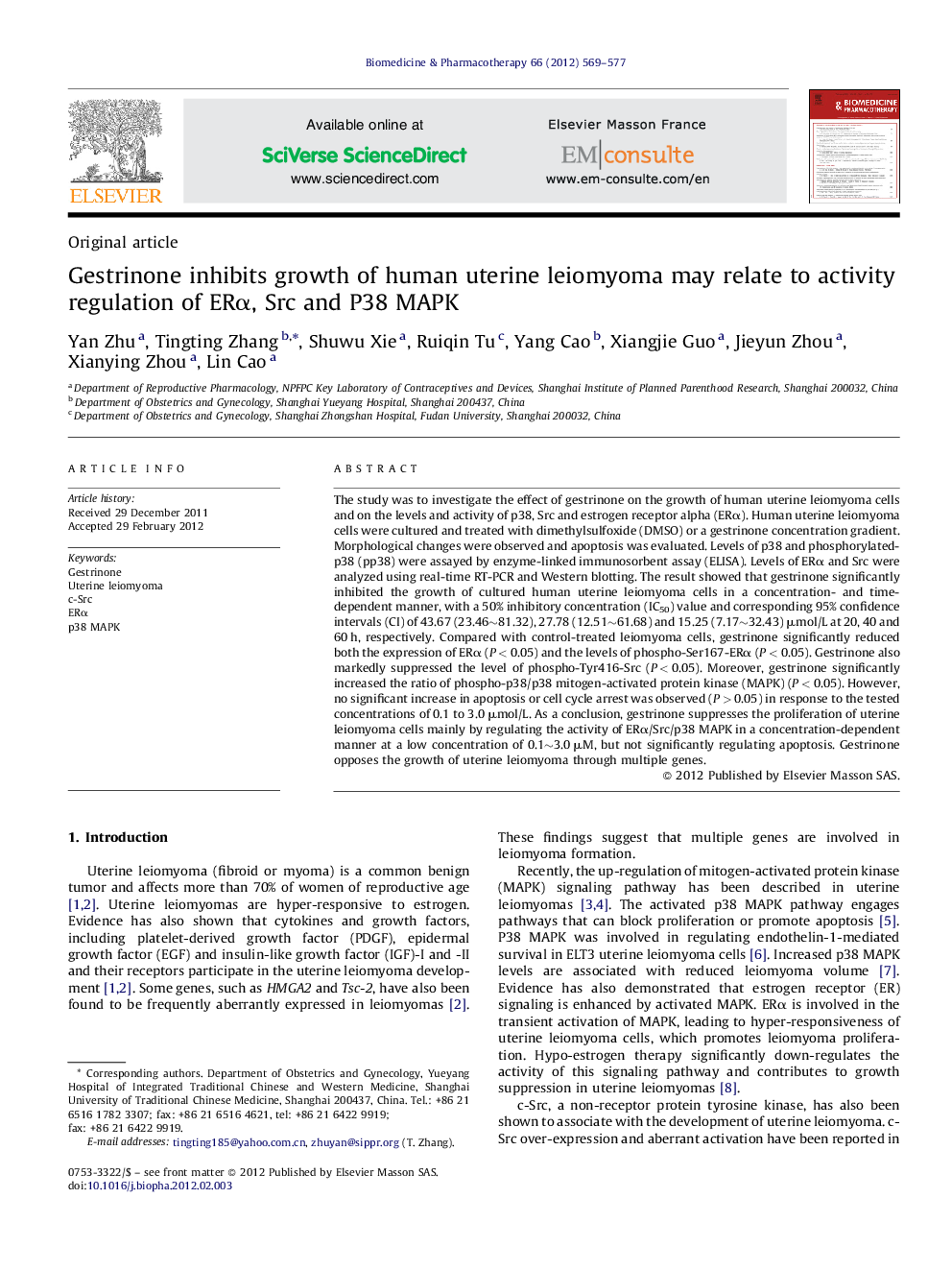| Article ID | Journal | Published Year | Pages | File Type |
|---|---|---|---|---|
| 2524299 | Biomedicine & Pharmacotherapy | 2012 | 9 Pages |
The study was to investigate the effect of gestrinone on the growth of human uterine leiomyoma cells and on the levels and activity of p38, Src and estrogen receptor alpha (ERα). Human uterine leiomyoma cells were cultured and treated with dimethylsulfoxide (DMSO) or a gestrinone concentration gradient. Morphological changes were observed and apoptosis was evaluated. Levels of p38 and phosphorylated-p38 (pp38) were assayed by enzyme-linked immunosorbent assay (ELISA). Levels of ERα and Src were analyzed using real-time RT-PCR and Western blotting. The result showed that gestrinone significantly inhibited the growth of cultured human uterine leiomyoma cells in a concentration- and time-dependent manner, with a 50% inhibitory concentration (IC50) value and corresponding 95% confidence intervals (CI) of 43.67 (23.46∼81.32), 27.78 (12.51∼61.68) and 15.25 (7.17∼32.43) μmol/L at 20, 40 and 60 h, respectively. Compared with control-treated leiomyoma cells, gestrinone significantly reduced both the expression of ERα (P < 0.05) and the levels of phospho-Ser167-ERα (P < 0.05). Gestrinone also markedly suppressed the level of phospho-Tyr416-Src (P < 0.05). Moreover, gestrinone significantly increased the ratio of phospho-p38/p38 mitogen-activated protein kinase (MAPK) (P < 0.05). However, no significant increase in apoptosis or cell cycle arrest was observed (P > 0.05) in response to the tested concentrations of 0.1 to 3.0 μmol/L. As a conclusion, gestrinone suppresses the proliferation of uterine leiomyoma cells mainly by regulating the activity of ERα/Src/p38 MAPK in a concentration-dependent manner at a low concentration of 0.1∼3.0 μM, but not significantly regulating apoptosis. Gestrinone opposes the growth of uterine leiomyoma through multiple genes.
